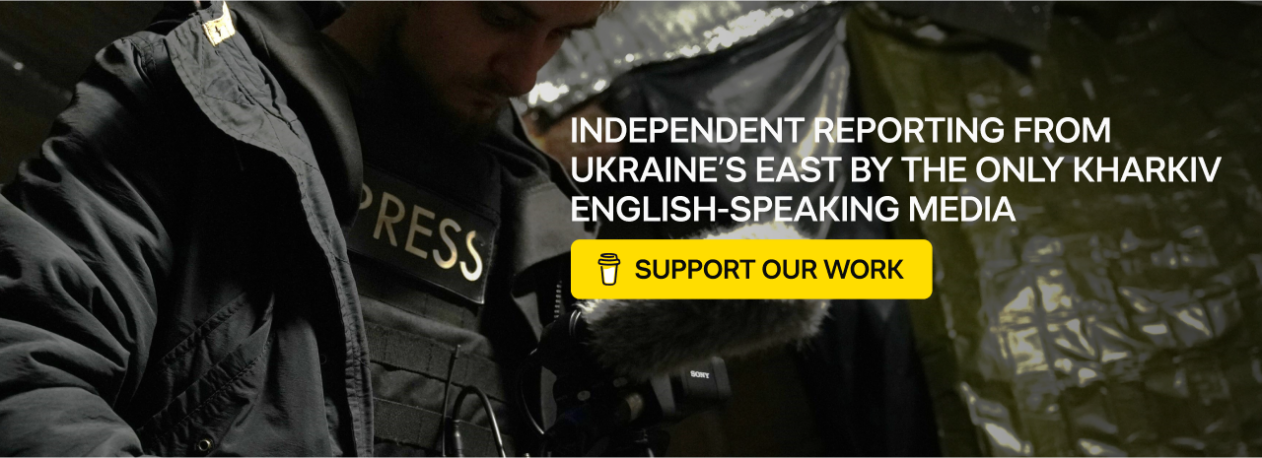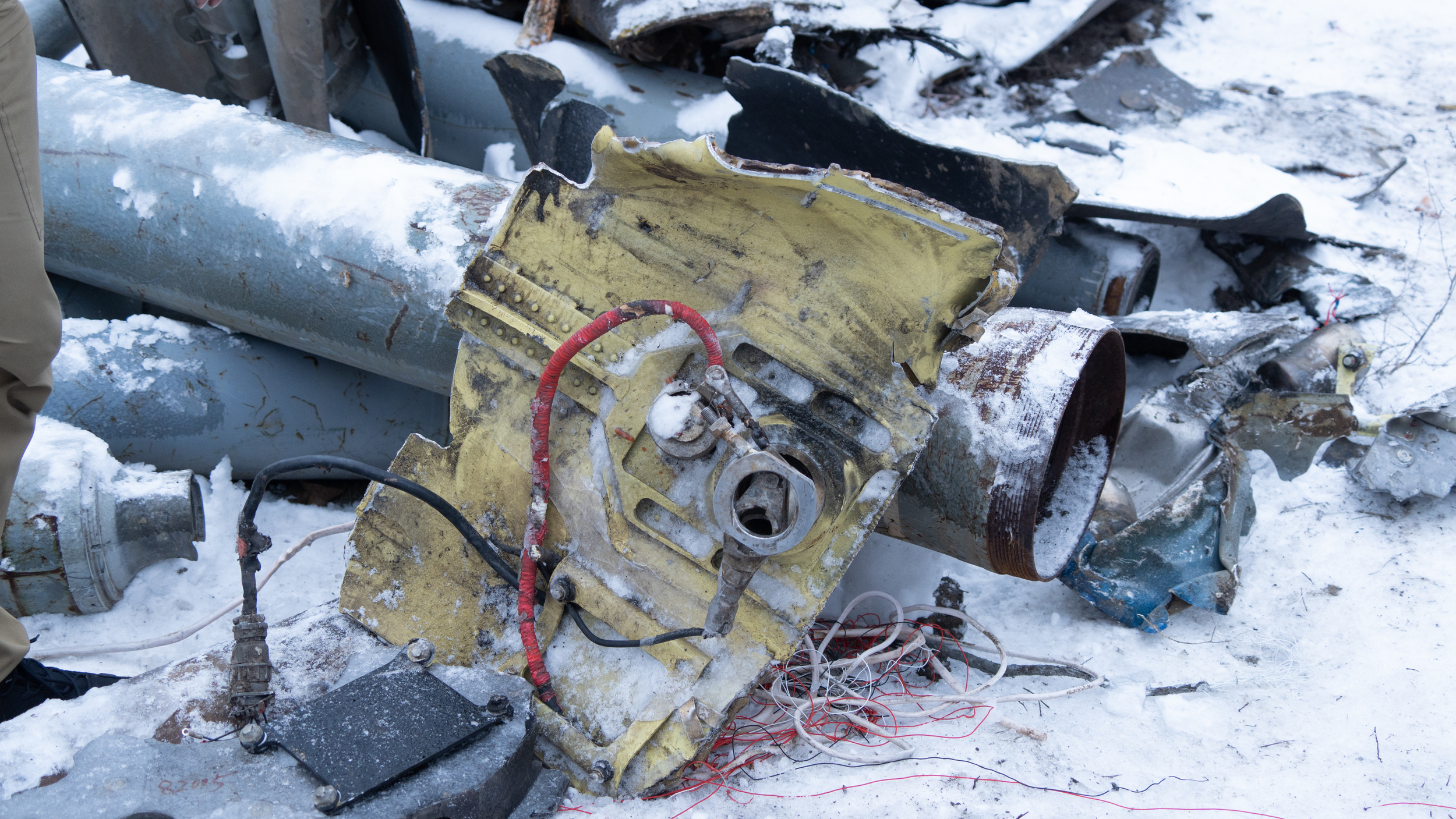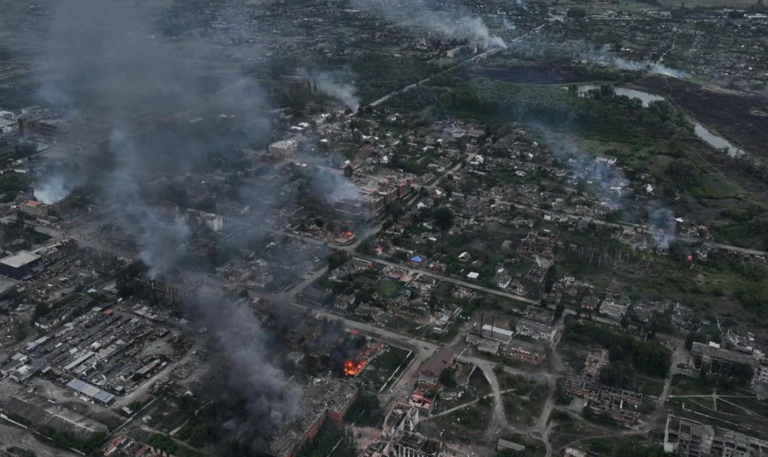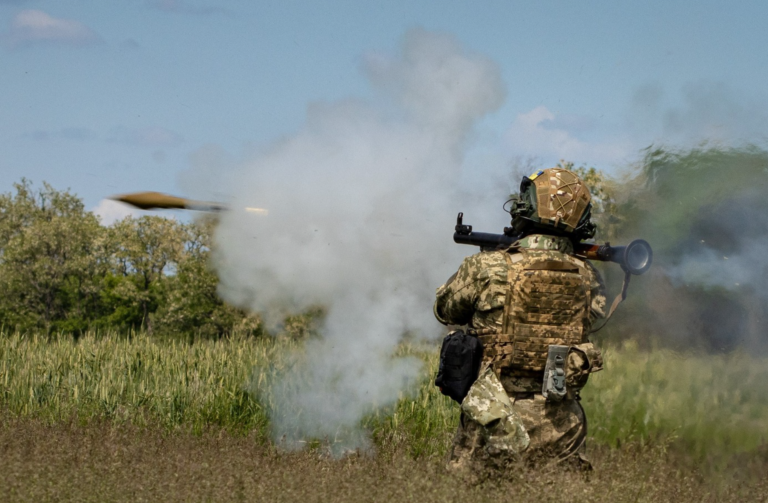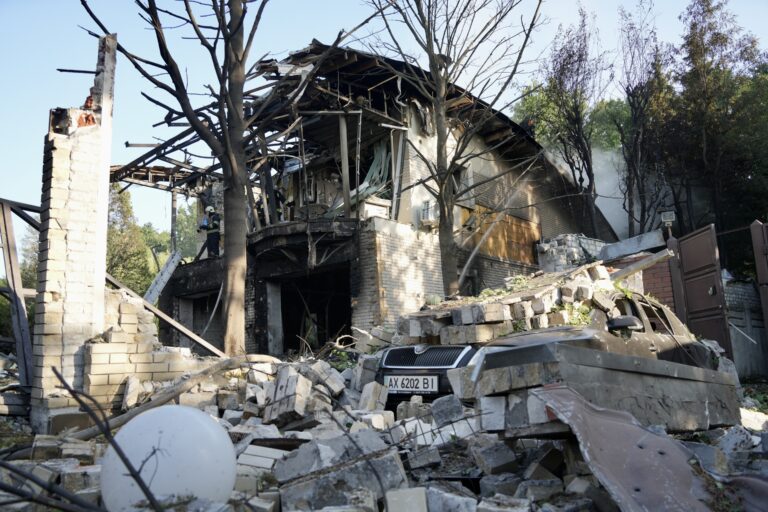KHARKIV OBLAST, UKRAINE, Apr 30 — United Nations sanctions monitor experts told a Security Council committee in a report that the debris from the missile that the Russians used to hit Kharkiv on January 2, 2024, was from a North Korean Hwasong-11 series ballistic missile, Reuters reports.
On the morning of January 2, four explosions were heard in Kharkiv. The Russian missile attack injured more than 60 people, including five children, and killed three people. Law enforcement officers seized a fragment of one of the missiles, which national and international experts identified as a North Korean KN-23 missile.
According to Reuters, in the 32-page report, the U.N. sanctions monitors informed that debris recovered from a missile that “landed” in Kharkiv on January 2, 2024, derives from a DPRK Hwasong-11 series missile and violates the arms embargo on North Korea.
“Information on the trajectory provided by Ukrainian authorities indicates it was launched within the territory of the Russian Federation… Such a location, if the missile was under control of Russian forces, would probably indicate procurement by nationals of the Russian Federation,” sanctions monitors wrote in an April 25 report to the Security Council’s North Korea sanctions committee, adding that this would be a violation of the arms embargo imposed on North Korea in 2006.
According to journalists, the Russian and North Korean missions to the United Nations in New York did not immediately respond to the sanctions monitors’ request for their comment on the report.
“The U.S. and others have accused North Korea of transferring weapons to Russia for use against Ukraine, which it invaded in February 2022. Both Moscow and Pyongyang have denied the accusations but vowed last year to deepen military relations. At a U.N. Security Council meeting in February, the U.S. accused Russia of launching DPRK-supplied ballistic missiles against Ukraine on at least nine occasions,” Reuters write.
On March 28, 2024, Russia vetoed the annual renewal of the mandate of the UN sanctions monitors. They have been monitoring compliance with UN sanctions against North Korea since 2016. Their mandate expires on April 30.
Read more
- On April 28, the Russian shelling of the Kharkiv region injured two civilian men and a woman, said Oleh Syniehubov, Kharkiv Oblast Governor.
